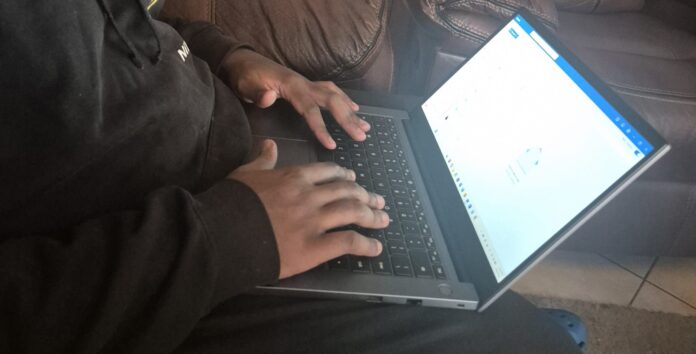The pursuit of free movies, music, and sports streams is costing South Africans far more than they realise.
At an Anti-Piracy Coalition (APC) workshop hosted at the Gordon Institute of Business Science (GIBS), on September 23, stakeholders stressed that digital piracy is not a victimless crime. They said it is both a direct threat to consumer safety and a serious danger to the survival of South Africa’s creative economy.
APC, in collaboration with the Department of Communications & Digital Technologies (DCDT), convened industry leaders including LaLiga, the Motion Picture Association (MPA), Cell C, the Independent Communications Authority of South Africa (Icasa), the Film and Publication Board, the .za Domain Name Authority (.ZADNA), Parliamentary Portfolio Committee on Communications and Digital Technologies, Autodesk, Adams & Adams, the Companies and Intellectual Property Commission (CIPC), and others, to tackle this global concern.
Not a victimless crime
The unified message was clear: the era of viewing piracy as harmless is over.
Beyond copyright infringement, illegal streaming sites and downloads pose severe cybersecurity risks.
“Forget the pop-up ads. The real price of accessing content on illegal platforms is your digital security,” Lerato Mpila, convenor of the APC warned. He explained that pirate sites are often loaded with malware, ransomware, and spyware. This leaves users vulnerable to identity theft, financial fraud, and hacked devices.
The financial damage is staggering. Jorge Gazapo Díez, LaLiga Commercial Director for Africa, revealed that piracy costs LaLiga between €600–700 million annually.
“This is not only LaLiga’s problem,” he said, “it’s affecting everyone in the creative industry.”
The impact is just as devastating locally. Piracy costs the South African economy an estimated R5.8-billion annually. This leads to job losses across film, television, music, advertising, and publishing.
Stephen Hollis, an Intellectual Property (IP) lawyer at Adams & Adams, highlighted the legal challenges.
Poor anti-piracy mechanisms in SA
“We have a massive problem with piracy in South Africa. Not only piracy itself, but also our inability to act against it. Most of these operators base their services in other countries while targeting South African consumers.
“A clear example is Pirate Bay. You can log in right now on your phone and download the
latest movie or series from there,” he said.
South Africa’s outdated legal framework compounds the problem. Khuselo Diko, chairperson of the Portfolio Committee on Communications and Digital Technologies, agrees.
“We are operating with archaic legislation and regulatory policies in areas related to digital technology. The lack of updated laws is causing real harm. But through collaborative platforms like this workshop, we are hopeful we can co-create a modern legislative framework to guide us into the future.”
Priority areas identified
Stakeholders identified two urgent priorities in the fight against piracy:
- Stronger Legislation: Legal and regulatory experts called for updates to the Electronic Communications and Transactions Act to enable site-blocking. This would allow rights holders to request that Internet Service Providers (ISPs) block access to known pirate sites. Particularly those hosted overseas.
-
Continued Collaboration: Strong partnerships between government and the creative industry will be critical. Beverley Nkumanda, executive at the Film and Publication Board, emphasised this.
“From the film industry’s perspective, the alarming rate of piracy demands urgent action. Revenue lost to piracy is not just a loss for creators. It’s revenue that could have contributed to our country’s economic development,” she said.
Some also stressed the need for a pan-African approach. Prof. Lyal White, GIBS Academic Director of the Centre for Leadership & Dialogue, affirmed this.
“It is worthwhile to expand these conversations not just in South Africa but across Africa. To see whether others are also engaging in similar discussions as we build this with cooperative associations. For example, in Nigeria there is a lot of interest within their chambers. And we could suggest they hold similar discussions in their space so that we are all aligned.”
APC also announced plans for a public education campaign. The project is to be unveiled at the G20 Creative Economy Summit on November 13 in Johannesburg.
“We aim to educate the public about their responsibilities and the risks of accessing illegal materials. And ensuring we protect our ICT infrastructure,” said Mpila.
“Our goal is to help consumers understand both the value of intellectual property and the dangers of piracy.”
Need for urgent measures
The workshop concluded with consensus on the need for immediate measures. Beginning with site-blocking to be introduced as policy as a critical first step. Another key outcome was recognition of the need for localised data. South Africa still lacks detailed research on the economic and social impact of piracy. This is despite global partners such as LaLiga highlighting the scale of the problem.
Participants also agreed to study successful international models. These include Kenya’s approach to site-blocking, and inform local strategies. The overall takeaway: a clear shift from discussion to action. This with stakeholders committed to maintaining momentum through concrete, collaborative steps.
The workshop reframed piracy. Tot just as an industry concern but as a dual threat. A risk to consumers’ cybersecurity and an existential crisis for South Africa’s creative industries. And which depend on legitimate revenue to survive and thrive.



